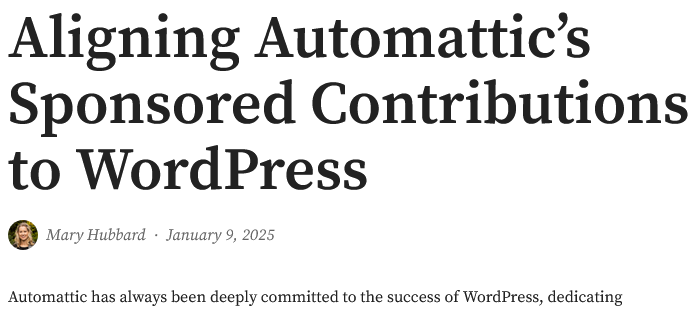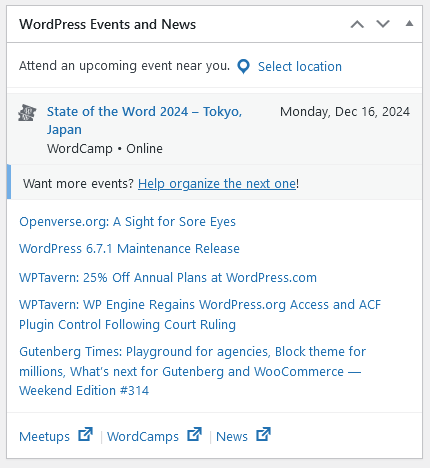New Executive Director of WordPress.org Now Credited as Author of Automattic’s Post Announcing Company’s Reduction in WordPress Contributions
Last week, Automattic announced that they would be reducing how many hours they claim to contribute to the WordPress project under the Five for the Future program. (The accuracy of the Five for the Future pledges in general seem highly suspect.) At the time, the post didn’t have an author shown, but ended “– The Automattic Team.” Since then, the design of Automattic’s website has been updated, causing the credited author of the post to be displayed. You can now see it is listed as Mary Hubbard:

